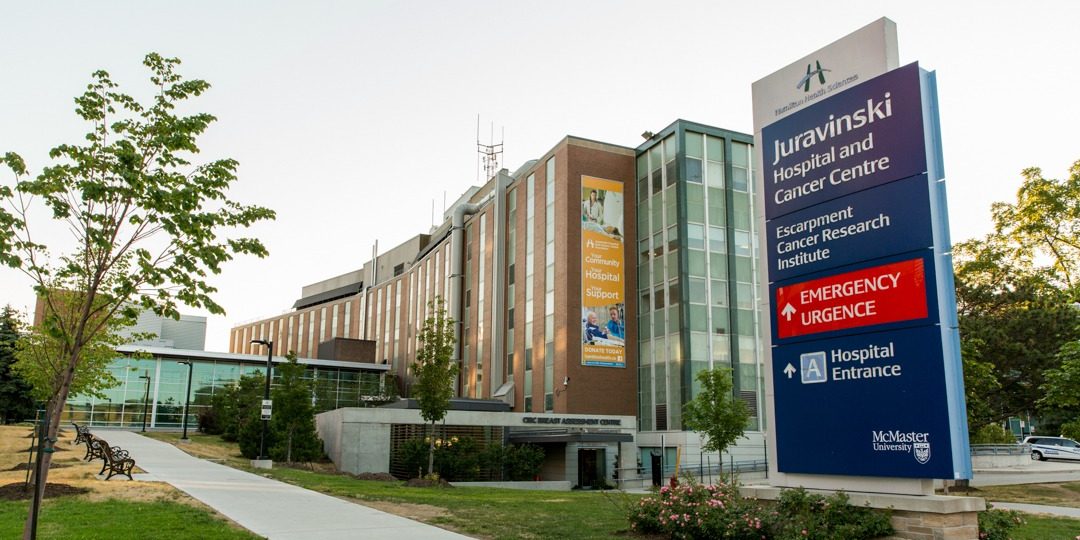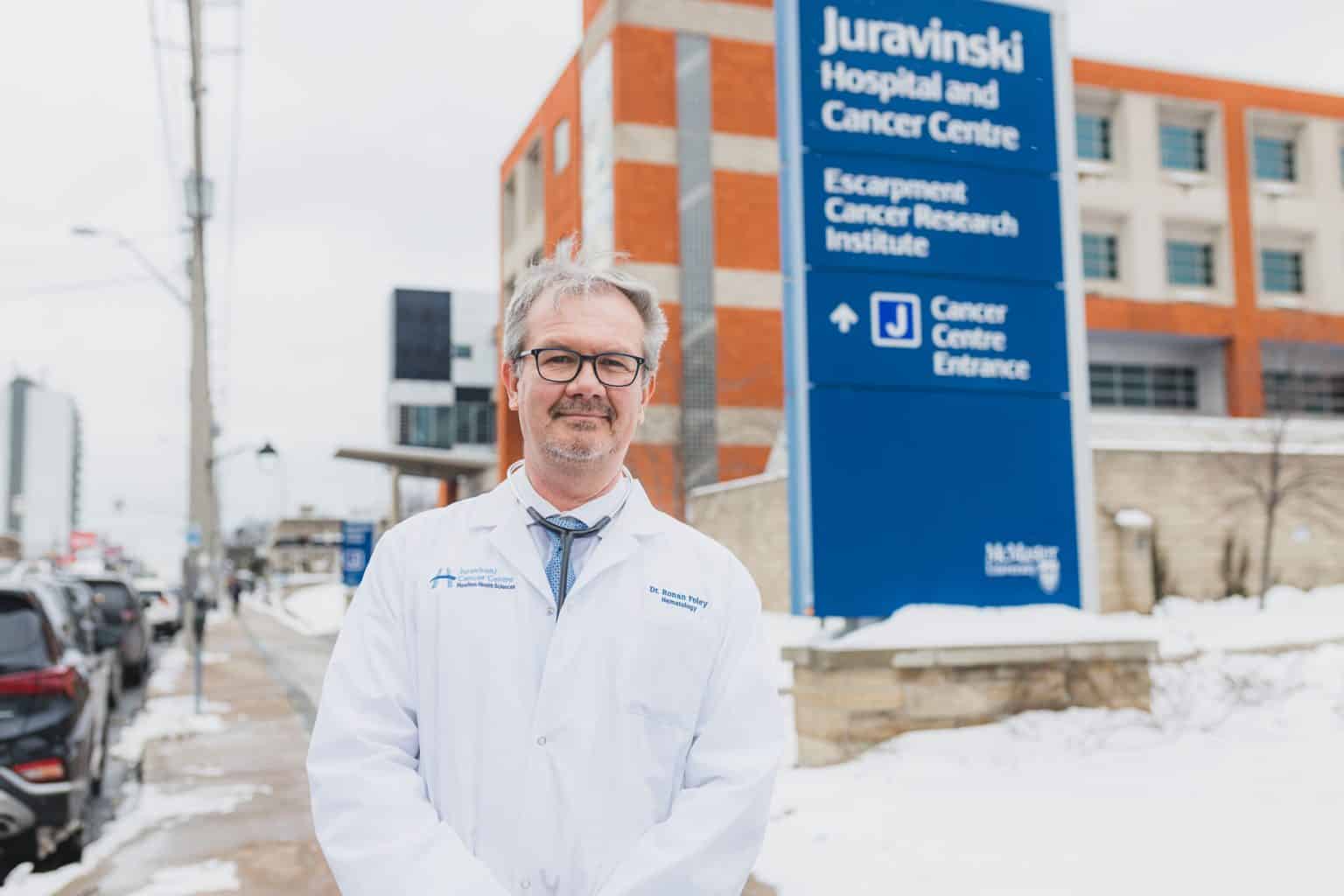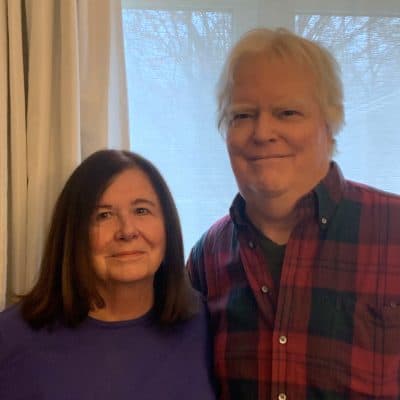Hamilton’s Juravinski hospital approves new cancer-killing medication: ‘I have hope’
Published February 6, 2023 at 11:47 am

Hamilton Health Sciences (HHS) Juravinski Hospital and Cancer Centre is the only hospital in the region where patients can be treated for all forms of the disease. Supporting more than 26,000 cancer patients each year, Juravinski’s commitment to research and innovation is providing hope for those diagnosed with some of the rarest forms of cancer — some of which, only weeks ago, would have been considered a death sentence.
Juravinski is now one of only three centres in Ontario approved to provide CAR T-cell therapy to adult patients. It involves changing a patient’s T-cells in a laboratory so they’ll attack cancer cells.
“The war on cancer has traditionally been fought on three fronts – radiation, chemotherapy and surgery,” says Dr. Ronan Foley, a hematologist at Juravinski Hospital and Cancer Centre. “But now there’s a fourth front – immunotherapy — offering new hope to many cancer patients.”

Hamilton Health Sciences Juravinski Hospital and Cancer Centre hematologist Dr. Ronan Foley. (HHS-provided photo)
Immunotherapy is a treatment that helps a person’s immune system fight cancer.
Blair Chown will be the first HHS patient to receive CAR T-cell therapy.
“I was considered palliative, but thanks to this new treatment, I have hope,” Chown, 71, told HHS.
Chown has mantle cell lymphoma, which is an aggressive type of non-Hodgkin’s lymphoma that develops in the outer edge of a lymph node, called the mantle zone.
“I’m so grateful for this treatment and the care I’ve received in Hamilton,” he added. ”I have tremendous confidence in the team there. They have been superb.”

Blair Chown, with his wife, Linda. (HHS-provided photo)
According to HHS, about 8,000 people in Canada are diagnosed with non-Hodgkin’s lymphoma yearly. Of those, only about 100 receive a mantle cell diagnosis.
Chown’s T-cells were sent to a laboratory where the personalized medication was made, called Tecartus. The treatment contains his own T-cells, which have been re-programmed to attack the cancer cells.
Tecartus, which is made in California, was approved for Juravinski Hospital and Cancer Centre just a few weeks ago.
According to HHS, Chown is scheduled for his CAR T-cell therapy this month. It will begin with three days of low-dose chemotherapy to help prepare his body to accept the modified cells.
“Once infused, CAR T-cells go on to multiply in the body and continue fighting the cancer,” Foley said. “It’s a one-and-done treatment since patients typically need only one CAR T-cell infusion.”
“Without Tecartus, these patients would be considered palliative, facing end-of-life care.”
HHS said Tecartus CAR T-cell therapy is only considered when chemotherapy or a stem cell transplant fails to control the disease. Chown’s mantle cell lymphoma was treated with both, but his cancer came back.
He was told that he had less than two years to live after hearing his diagnosis. Doctors now say Chown’s cancer could be in remission for good.
insauga's Editorial Standards and Policies advertising





